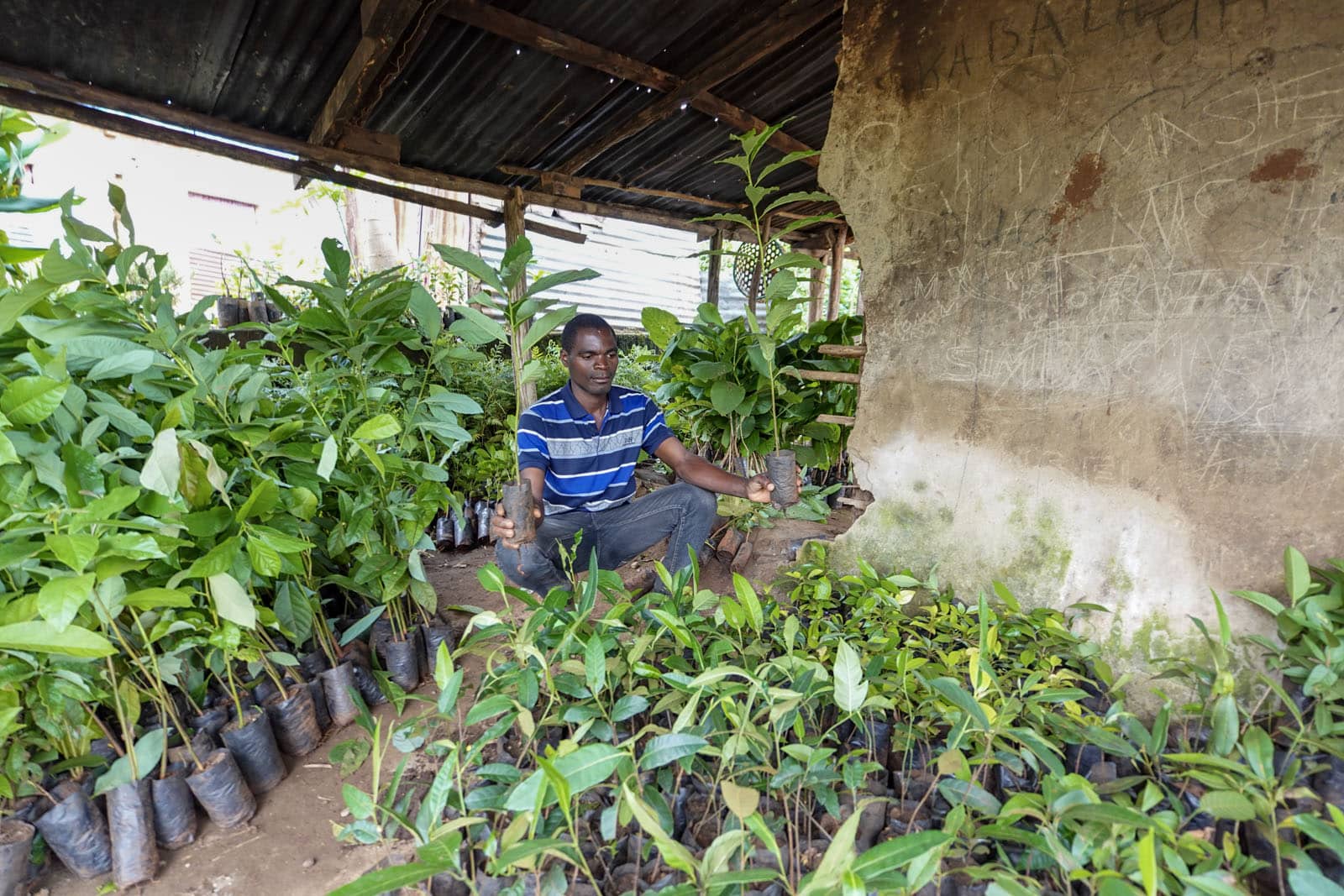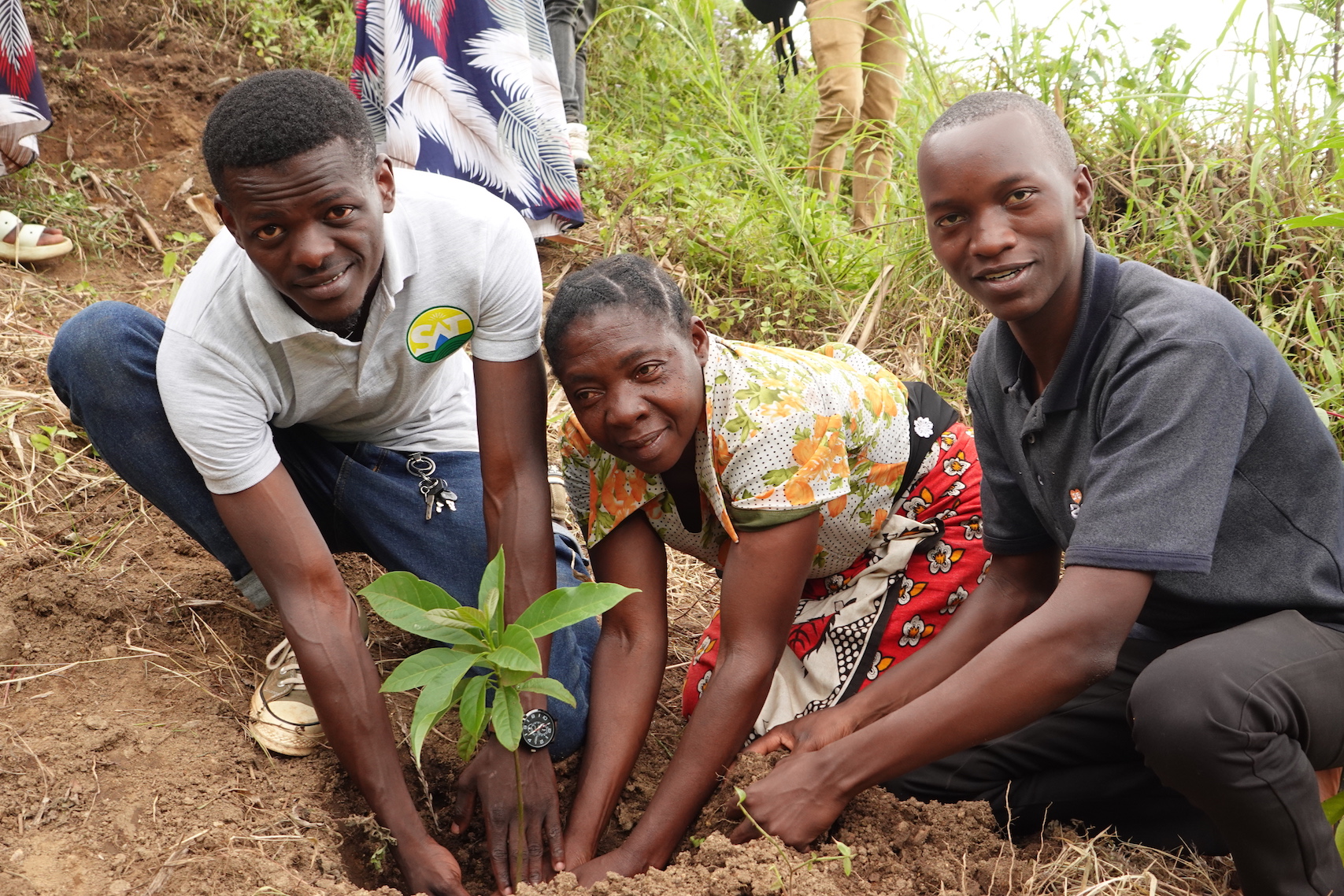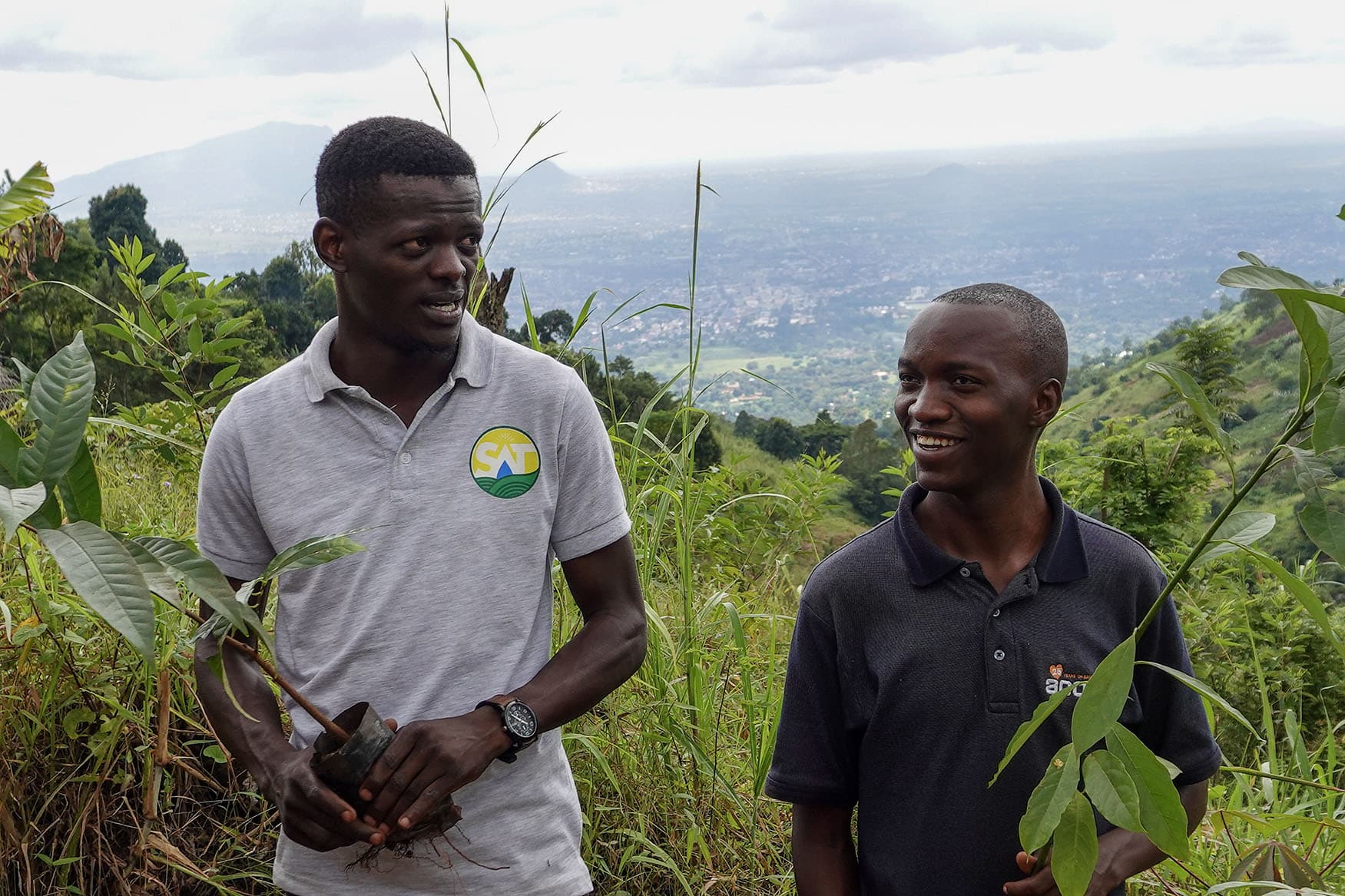In a demonstration of community and environmental stewardship, APOPO’s HeroTREEs program, in partnership with Sustainable Agriculture Tanzania (SAT) and local farmers from Mvomera, Choma, and Tulo villages, embarked on a huge tree planting mission in the Uluguru mountains. Located near APOPO’s operational headquarters in Morogoro, Tanzania, this effort saw the planting of 6,115 trees, bringing renewed life and ecological balance to the region.
The event aimed to combat climate change and enhance biodiversity while fostering unity among the participants, with the hope of creating a lasting impact for generations to come.

Teak (490), Soursop (44), Starfruit (36), Ylang ylang (108), Jackfruit (37), Cassod tree (53), East African Mahogany (4,726), Java plum (78), Avocado (78), Mango (60), and Grevillea (405). These trees are set to flourish in HeroTREEs farms, enhancing local agriculture and contributing to the environment.
The Impact of Tree Planting
Aron Katosho (below image, right), the HeroTREEs program officer from APOPO, explained the impact of this initiative, “Planting trees improves soil health, enhances pollination systems, and cools farmlands, boosting agricultural productivity. It’s vital to plant trees because we are sowing the seeds of life for future generations and supporting the biodiversity that depends on healthy forests. Trees act as nature’s air filters, sequestering carbon dioxide and combating climate change. Healthy forests are essential for biodiversity to thrive, creating a haven for countless species and ensuring a balanced ecosystem.”
The event involved many local farmers and community members pitching in, working together, digging in the dirt and planting trees. With different kinds of trees going in, they were creating a diverse home for animals and making their corner of the world even more beautiful.
Gratitude from Local Leaders

SAT’s Ibrahim Manji, HeroTrees Farmer Mama Kibwana and APOPO’s Aron Katosha plant a tree together.
Mama Chagua Kibwana, a leader of a farmer group in Mvomera village, expressed her gratitude for the initiative, “We are so grateful to see organizations supporting what we do to make a living and helping us address the environmental challenges we face. This initiative not only benefits the environment but also provides additional income opportunities through sustainable agroforestry practices. Thank you for your knowledge and planting support!”
Ibrahim Manji, SAT’s tree planting project coordinator, highlighted the broader implications of this effort: “SAT has been supporting farmers with sustainable farming practices for a long time. Planting trees is a crucial part of organic farming, helping create a sustainable agricultural system. We are grateful for this collaborative effort and for providing free tree seedlings to the farmers, empowering them to become active stewards of the environment and ensuring long-term benefits for both the environment and their livelihoods.”
A Symbol of Unity and Sustainability
The collaboration between APOPO, SAT, and the local farmers of Mvomera, Choma, and Tulo villages is a testament to the power of collective action. Together, we are not just planting trees—we are cultivating hope, resilience, and a greener tomorrow for all.
The tree planting initiative in the Uluguru mountains, spearheaded by APOPO’s HeroTREEs program, SAT, and the dedicated farmers of Mvomera, Choma, and Tulo villages, marks a significant step towards a sustainable and prosperous future. By planting over 6,000 trees, this collaborative effort is rejuvenating the local environment, enhancing biodiversity, and promoting sustainable agriculture. It serves as a powerful reminder that when communities unite for a common cause, they can achieve remarkable outcomes, fostering a greener, healthier planet for generations to come.
Would you like to support the HeroTREEs project and help protect the environment and safeguard the future of local communities?


